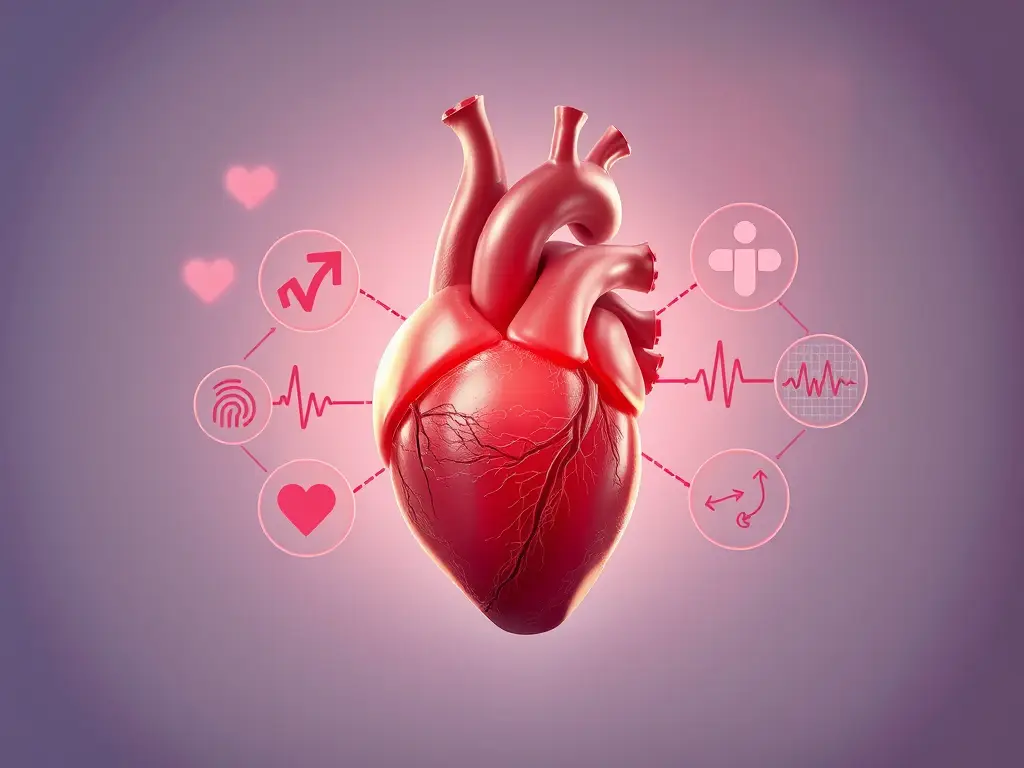Cardiology is a vital field of medicine focused on the heart and blood vessels. Understanding how the heart works is essential for maintaining good health. The heart is a complex organ made up of two ventricles and two atria. It relies on coronary arteries to supply the blood it needs to function properly.
Key Heart Diseases You Should Know
- Acute Myocardial Infarction (Heart Attack)
A heart attack occurs when blood flow to the heart is blocked. This can cause damage to the heart muscle. - Angina
Angina is chest pain caused by reduced blood flow to the heart. It often feels like pressure or squeezing in the chest. - Coronary Heart Disease
This condition involves the narrowing of the coronary arteries, which can lead to heart attacks. - Cardiac Arrest
Cardiac arrest is a sudden loss of heart function. It requires immediate medical attention. - Cardiac Arrhythmias
These are irregular heartbeats that can affect how well the heart pumps blood. - Cardiomyopathy
This disease affects the heart muscle, making it harder for the heart to pump blood. - Congenital Heart Defects
These are heart problems present at birth, affecting normal heart structure. - Tetralogy of Fallot
A specific type of congenital heart defect that involves four heart abnormalities. - Endocarditis
An infection of the inner lining of the heart, often caused by bacteria. - Heart Failure
This condition occurs when the heart cannot pump enough blood to meet the body’s needs. - Ischaemic Heart Disease
A condition caused by reduced blood supply to the heart, often due to coronary artery disease. - Myocarditis
Inflammation of the heart muscle, usually due to a viral infection. - Rheumatic Heart Disease
Damage to the heart valves caused by rheumatic fever, which can follow untreated strep throat. - Valvular Heart Disease
This involves damage to one or more of the heart valves, affecting blood flow.
Recognizing Important Symptoms
One of the key symptoms to watch for is a heart murmur. This is an unusual sound during a heartbeat, which can indicate underlying heart issues. Other symptoms may include:
- Chest pain or discomfort
- Shortness of breath
- Fatigue
- Swelling in the legs or abdomen
- Dizziness or lightheadedness
Why Cardiology Matters
Understanding cardiology is crucial for everyone. Heart disease is one of the leading causes of death worldwide. By learning about the heart and its functions, you can take proactive steps to protect your heart health.
Tips for a Healthy Heart
- Eat a Balanced Diet
Focus on fruits, vegetables, whole grains, and lean proteins. Limit saturated fats, sugars, and salt. - Stay Active
Aim for at least 150 minutes of moderate exercise each week. Activities like walking, swimming, or cycling can strengthen your heart. - Quit Smoking
Smoking is a major risk factor for heart disease. Seek help to quit if you need it. - Manage Stress
High stress can impact your heart health. Practice relaxation techniques like yoga or meditation. - Regular Check-ups
Visit your doctor for regular heart health screenings. Early detection can save lives.
Frequently Asked Questions About Cardiology
1. What is cardiology?
Cardiology is the medical specialty that focuses on the heart and blood vessels.
2. What are the common heart diseases?
Common heart diseases include heart attacks, angina, and heart failure.
3. How can I improve my heart health?
You can improve your heart health by eating well, exercising, and avoiding smoking.
4. What are the symptoms of heart disease?
Symptoms may include chest pain, shortness of breath, and fatigue.
5. When should I see a cardiologist?
You should see a cardiologist if you experience persistent heart symptoms or have risk factors for heart disease.
Conclusion
Cardiology plays a crucial role in understanding and treating heart-related issues. By being informed about heart diseases and their symptoms, you can take charge of your heart health. Remember, a healthy lifestyle can significantly reduce your risk of heart disease. Stay proactive, and don’t hesitate to seek medical advice when needed!

